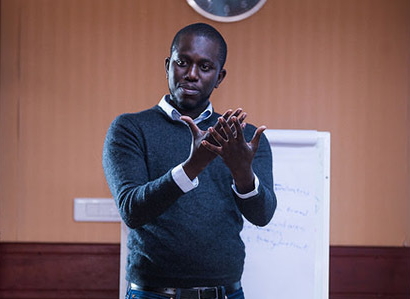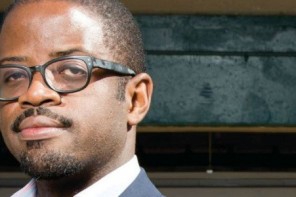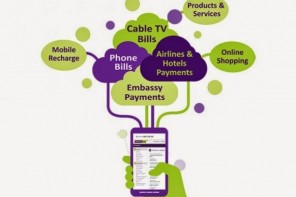Exponential growth in technology has led many to believe, the world is witnessing the start of a fourth industrial revolution, characterised by a combination of technologies that seek to merge the physical, digital and biological worlds. Being part of a technology driven society, it was only a matter of time before Africa became actively and strategically involved in the new age revolution swiping across the globe. According to Nouha Abardazzou of Africa Business Insight, although many African countries are still dealing with issues related to the first, second and third industrial revolutions such as electricity, mechanisation of production and automation, the ongoing industrial revolution, if used well, will enable Africa to become a major player in the world economy.
Topping the charts in the realm of technological advancement is none other than the very popular Artificial Intelligence. An international analytics powerhouse known as SAS, describes Artificial Intelligence (AI) as a technology that makes it possible for machines to learn from experience, adjust to new inputs and perform human-like tasks. AI performs frequent, high-volume, computerized tasks reliably and without fatigue. AI analyses more and through deep neural networks, which was previously impossible, AI achieves incredible accuracy. AI adapts through progressive learning algorithms to let the data do the programming, also it gets the most out of data. When algorithms are self-learning, the data itself can become intellectual property. Most importantly, AI adds intelligence to existing products. Taking all these benefits into consideration, it is obvious that, if used responsibly, AI offers a wonderful opportunity to create a future of efficiency, reliability and satisfaction for our fast-paced world. Research from PricewaterhouseCoopers estimated artificial intelligence technologies could increase global GDP by $15.7 trillion, a full 14%, by 2030 of which $1.2 trillion would be added for Africa. In summary, AI is the future. No wonder IT moguls such as Google LLC has been very keen on scaling up its activities in this area.
Find out how IHUB is taking tech to the next level in Nairobi
In 2016, the company reportedly invested $30 billion on AI and machine learning research. Two years later it drew attention to itself by announcing a major move in the very young and fragile AI sector of Africa. Google decides to take this major step in Africa when majority market share models are now much more possible with AI as indicated by Eric Schmidt, former executive chairman and current technical advisor at Google. “AI has great potential to positively impact the world. So, it makes sense to us the world should be well represented in the development of AI. Our new AI centre in Accra joins the list of other locations around the world where we focus on AI”– Google.
The Google AI research centre in Africa will be led by Senegalese born Dr. Moustapha Cisse, a former research scientist at Facebook. Mr. Cisse who recently joined the Google AI Research also doubles as an AIMS professor and founder of the organization Black in AI. This grand technological venture is expected to mobilize top notched machine learning researchers and engineers who will be committed to AI research, and its applications on the continent. Key areas of the project are research on medical diagnosis and treatment, fairness in machine learning, and interpretability and understanding of machine learning models, as disclosed by a Google spokesperson to VentureBeat. “We’re excited to combine our research interests in AI and machine learning and our experience in Africa to push the boundaries of AI while solving challenges in areas such as healthcare, agriculture, and education.”-Moustapha Cisse, leader of Google AI Africa and Jeff Dean, senior fellow Google AI.
Why Ghana?
Although Africa has witnessed noticeable changes and recognisable advancement in terms of the internet technology, Africa continues to deal with the underlying issues of poor infrastructure and insufficient connectivity which hinder a mile stone technological development on a large and significant scale within the continent. None the less a few African countries have distinguished themselves from the others by taking significant action towards addressing these issues and creating a much more convenient nest for highly advanced technological endeavours like the AI project. Ghana ranks itself high on the list. Jeff Dean narrows Google’s reasons to the robust network of academic institutions such as local universities and research centres like the African Institute of Mathematical Sciences (AIMS) as well as infrastructure present in Ghana. The company is said to be a major investor in bolstering these institutions and the infrastructure around it.
The African Institute for Mathematical Sciences (AIMS) recently started a one-year intensive African Master’s in Machine Intelligence (AMMI) in partnership with Facebook and Google, at the AIMS-Rwanda campus in Kigali, Rwanda. The AMMI program will provide brilliant young Africans with state-of-the-art training in machine learning and its applications. Each course on AMMI will be lectured by leading experts from prestigious African and international institutions, providing the AMMI students the best possible foundation. As pioneers of a growing ecosystem of African machine intelligence specialists, these students will be able to bring in leading edge skills to Africa’s economy, governance and society at large. “Our goal with AMMI is to train a generation of young scientists who will bring a fresh perspective to machine intelligence research and contribute to advancing its development across Africa, for the benefit of its society” said Dr. Mouhamadou Moustapha Cissé, Founder and Director of the AMMI program and Professor of Machine Learning at AIMS. Meanwhile Facebook seeks to drive positive social and economic impact across Africa, and this partnership is a major move towards driving innovation by supporting the continent’s already exciting tech ecosystem and talent pool.
Get tips for tech entrepreneurs willing to attract investment
Since Google entered the African technological sphere over ten years now, 10 million Africans are estimated to benefit from its overall digital skills training program with 2 million people having already completed the course. Google is supporting 100,000 developers and over 60 tech Start-ups through its Launchpad Accelerator Africa, while trying to adapt its products to make it easy for people to enjoy proper internet services, even on low-RAM smartphones or unstable network connections.
It may not seem as such, but Africa is in the process of transforming into a technological playground and a viable player on the global market. Artificial Intelligence can take Africa there! From the 13th through the 15th of November 2018, the world’s number one AI event for business will take place in Cape town, South Africa under the theme, Human capacity truly reimagined. The launch of the AI Summit Cape Town as part of AfricaCom this year is expected to bring together leading global multinationals as well as regional powerhouses with the aim of uncovering the true opportunity AI presents for the most forward-thinking enterprises, tackling the challenges around people-change management, upskilling the workforce, creating deeper relationships with customers and partners as well as understanding the business case. Advanced technologies are therefore not a luxury. It is crucial to Africa, as stated by Getnet Assefa, founder of iCog, Ethiopia’s first AI lab.





